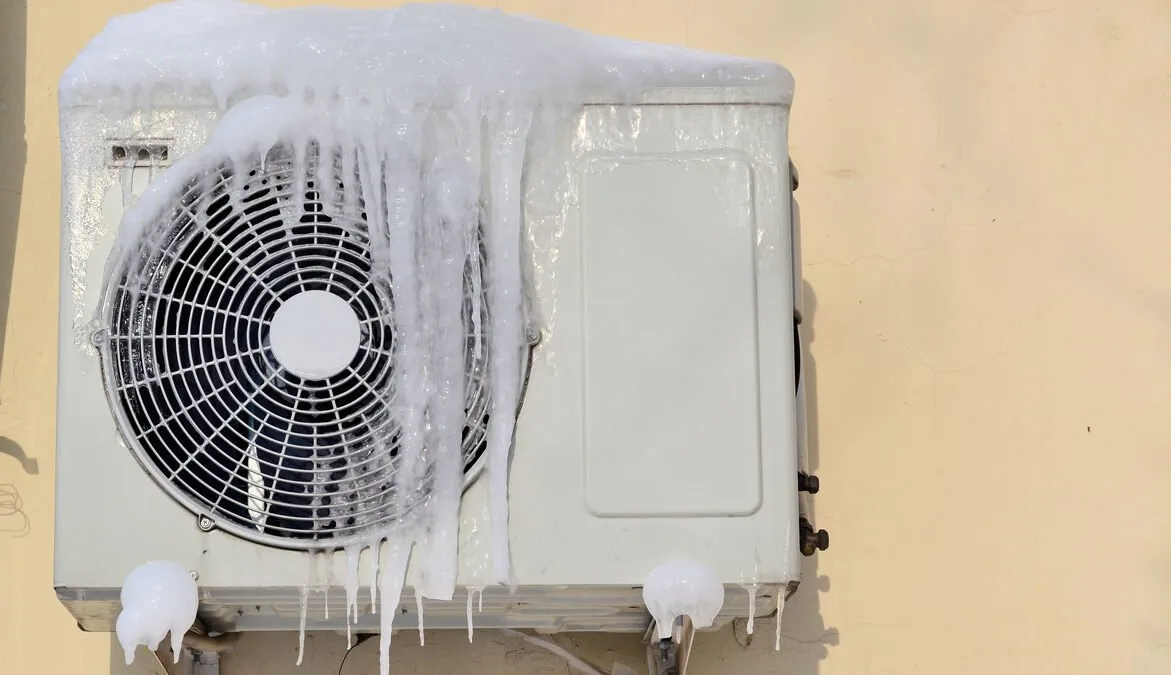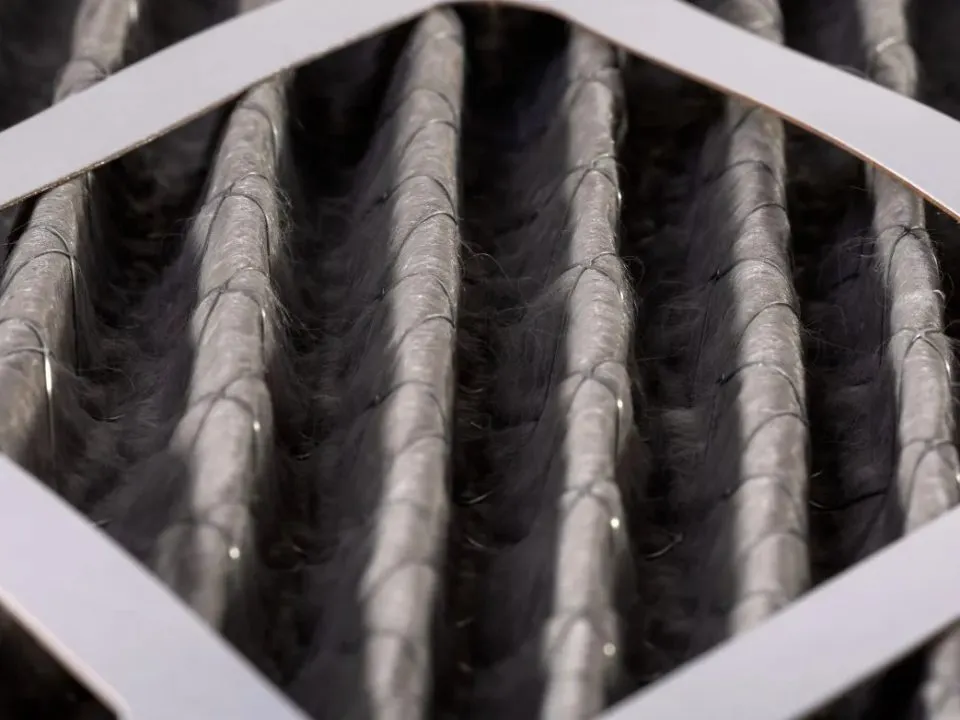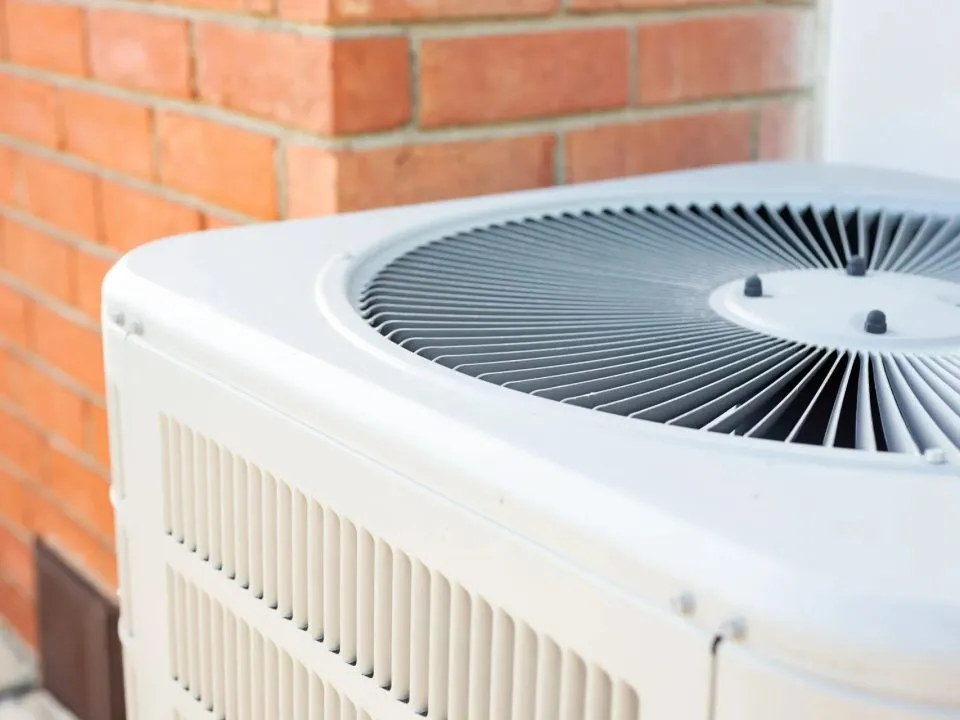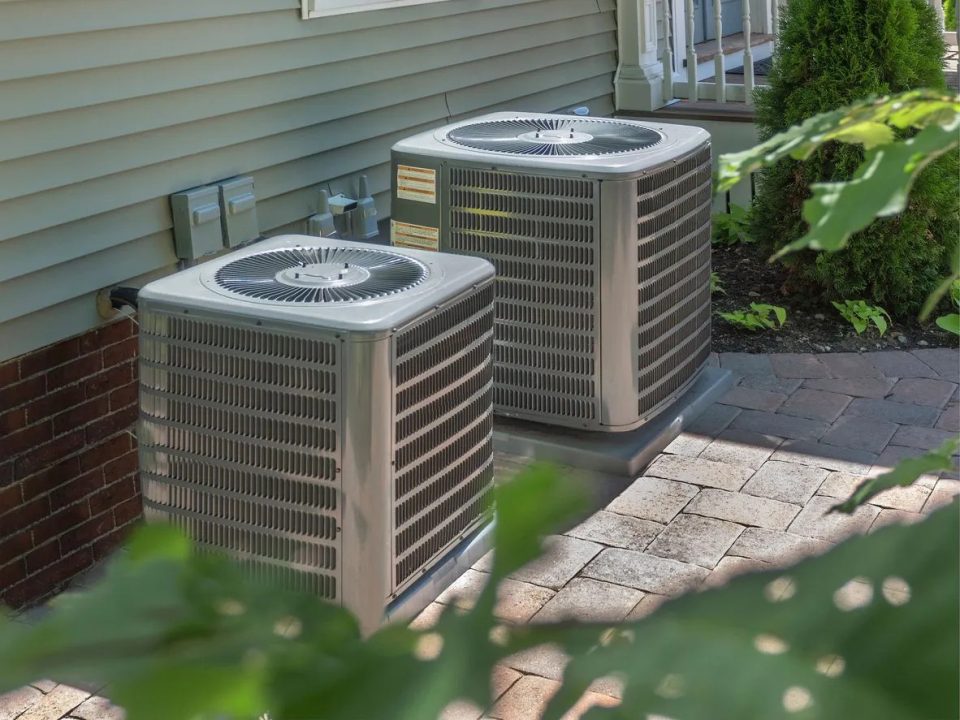
When the summer heat is at its peak, the last thing you want is for your air conditioning unit to freeze up – Especially in Texas. However, this frustrating problem can occur for various reasons, hampering the performance of your AC system and leaving you in discomfort. The HVAC technicians at Honest Plumbing & Air are here to explain the causes of an AC unit freezing up and provide you with practical steps to take when facing this issue.
Understanding the Issue
Before you can fix anything, it’s essential to understand what’s happening. So why does an AC unit freeze up? The answer is in five main factors: poor airflow, low refrigerant levels, mechanical failures, dirty evaporator coil, and a faulty thermostat.
Causes of AC Unit Freezing
There are several potential culprits behind an AC unit freezing up. Understanding these causes can help you troubleshoot and resolve the problem effectively.
Poor Airflow
One common cause of an AC unit freezing up is insufficient airflow. When the airflow is restricted, the evaporator coil may become too cold, forming ice. Blocked vents, closed registers, or a dirty air filter can impede the proper flow of air, resulting in reduced cooling efficiency and potential freezing.
Low Refrigerant Levels Change
Inadequate refrigerant levels or leaks in the lines can also cause your AC unit to freeze. The refrigerant plays a crucial role in the cooling process, and any imbalance can disrupt the heat transfer, causing ice accumulation on the evaporator coil.
Mechanical Failures
Mechanical issues, such as a malfunctioning blower fan or a kink in the refrigerant lines, sometimes cause the unit to freeze.
Dirty Evaporator Coil
A dirty evaporator coil can hinder heat absorption and impede the proper functioning of your AC system. Accumulated dirt and debris on the coil’s surface act as an insulating barrier, preventing efficient heat exchange and leading to freezing.
Faulty Thermostat
A malfunctioning thermostat can mistakenly signal the AC unit to continue cooling beyond the desired temperature, resulting in excessive cooling and eventual freezing. A faulty sensor or incorrect calibration may contribute to this issue.
Signs Your AC Unit is Frozen
Recognizing a frozen AC unit is half the battle. Look out for reduced cooling efficiency, unusual noises, and visible ice on the unit.
Reduced Cooling Efficiency
If your AC is running, but the room isn’t getting cooler, it might be frozen. A frozen unit can’t absorb heat effectively, leading to reduced efficiency.
Unusual Noises
Another sign of a frozen AC unit is odd noises, usually caused by the fan hitting the ice buildup.
Ice on the Unit
Visible ice formation on the AC unit, particularly on the refrigerant lines or the evaporator coil, clearly indicates a freezing issue. The ice restricts proper heat exchange and obstructs the cooling process.
Warm Air Blowing
While it may seem counterintuitive, a frozen AC unit may blow warm air instead of cold air. The ice buildup can disrupt the cooling cycle, resulting in inefficient cooling and warm air circulation.
Steps to Defrost Your AC Unit
Caught a frozen AC unit? Don’t panic! Here’s what to do.
Turn Off Your AC Unit
First, turn off your air conditioning unit to prevent further ice formation and potential damage. It’s crucial to give the system time to thaw before proceeding with troubleshooting.
Check and Clean the Air Filters
Inspect the vents and registers to ensure they are not blocked or obstructed. Remove any objects or debris that impede the airflow, allowing the system to operate optimally.
Replace the Air Filter
A dirty or clogged air filter can contribute to freezing issues by restricting the airflow. Check the air filter and replace it if necessary, ensuring an unrestricted passage for the air to flow through.
Allow Your AC Unit to Thaw
Give it time. It might take a few hours for the ice to melt fully. You can speed up the process with a hairdryer set on ‘low,’ but be careful not to damage the unit.
Clean the Evaporator Coil
Once the unit has thawed, carefully clean the evaporator coil using a soft brush or cloth. Remove any accumulated dirt or debris hindering heat exchange and impeding proper cooling.
Inspect Refrigerant Levels
If you suspect refrigerant issues, it’s advisable to contact a professional HVAC technician. They can assess the refrigerant levels, identify leaks, and recharge the system if necessary.
Test the Thermostat
Check the thermostat for any malfunctions or incorrect settings. Ensure the temperature readings are accurate and the thermostat is calibrated correctly. Replace or repair the thermostat if needed.
Preventing Future Freeze Ups
Prevention is always better than cure when your AC unit is freezing up. Implement these preventive measures to minimize the chances of encountering this issue:
Regular Maintenance
Schedule regular maintenance and inspections for your AC system. This includes cleaning the coils, checking refrigerant levels, and ensuring all components are in optimal condition. Regular maintenance can address potential problems before they escalate into major issues.
Adequate Insulation
Proper insulation of your home or office space helps maintain stable indoor temperatures, reducing the strain on your AC system. Adequate insulation prevents heat transfer, allowing the unit to operate more efficiently and reducing the likelihood of freezing.
Proper Airflow
Ensure unrestricted airflow by keeping vents and registers clear of obstructions. Additionally, make sure furniture or other objects are not blocking the air pathways, allowing the conditioned air to circulate freely.
When to Call a Professional
Engage the services of a professional HVAC technician for regular inspections and tune-ups. Their expertise can help identify potential issues and ensure your AC system operates optimally throughout the year.
Frequently Asked Questions
Can a frozen AC unit cause any damage to the system?
Yes, a frozen AC unit can lead to various damages, including compressor failure and refrigerant leaks. It’s crucial to address the issue promptly to prevent further complications.
How long does it take for an AC unit to thaw?
The thawing process can take several hours, depending on the extent of ice buildup and ambient conditions. It’s essential to be patient and allow the unit to thaw naturally.
Can I use a hairdryer or other heat sources to thaw the AC unit?
It’s not recommended to use external heat sources like a hairdryer to thaw the AC unit. High temperatures can damage the unit and its components. Allow the unit to thaw naturally.
Should I attempt to recharge the refrigerant myself?
Recharging refrigerants requires specialized equipment and expertise. It’s best to contact a professional HVAC technician to handle refrigerant-related issues.
How often should I schedule maintenance for my AC unit?
It’s recommended to schedule maintenance for your AC unit at least once a year. However, if you live in a region with extreme climate conditions, bi-annual maintenance may be beneficial.
Have a Frozen AC Unit In Austin, Texas? Call Honest Plumbing & Air
If you’re facing the frustrating issue of a frozen AC unit and need the assistance of a professional HVAC company in Austin, Texas, look no further than Honest Plumbing & Air. Our experienced team of technicians is well-equipped to diagnose and fix your AC unit, restoring comfort to your home. Don’t let a frozen AC unit disrupt your summer; contact Honest Plumbing & Air today for reliable and efficient service.




